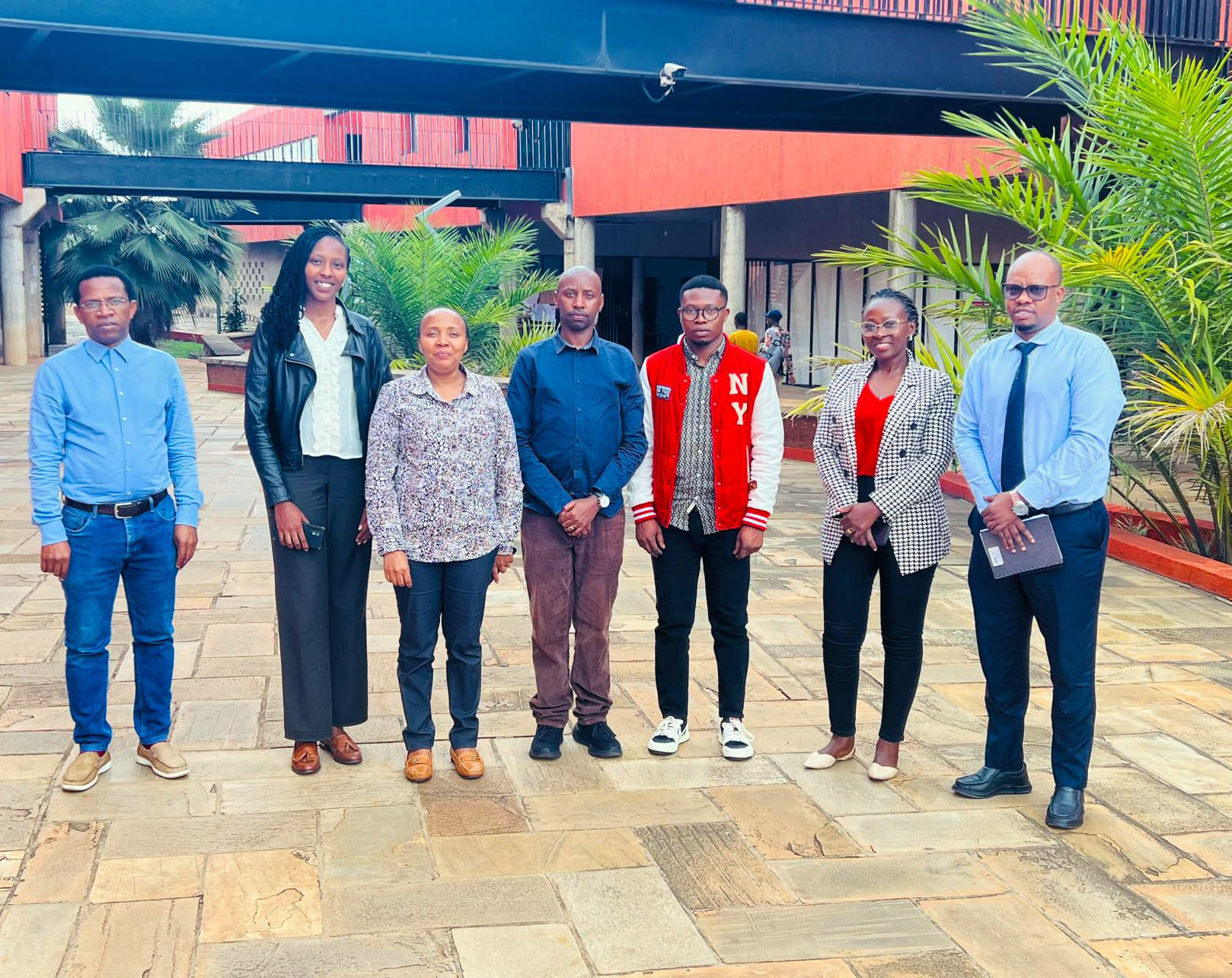
UR and Partners launch innovative research project to tackle urban mobility challenges in Africa
- 16-04-2025
- 1507
The University of Rwanda (UR), in collaboration with universities in Ghana (KNUST), the UK (OXFORD), and Finland (AALTO), has launched a groundbreaking research initiative titled Popular-to-Popular Transport Integration in Sub-Saharan Africa : The Case of Rwanda and Ghana (POINT). The project aims to engage, embrace and improve existing mobility realities towards an equitable, affordable, and reliable access to livelihoods and services for urban populations that rely heavily on informal/unstructured or “popular” transport systems.
Led by Dr. Josephine Malonza, Dean of the School of Architecture and Built Environment at the University of Rwanda’s College of Science and Technology, the POINT project seeks to shift attention from carbon-intensive infrastructure projects to a more inclusive approach that embraces informal modes of transport such as minibuses, motorcycle and bicycle taxis and walking. These systems often serve disadvantaged communities but are rarely considered in official planning.
Popular-to-popular transport integration refers to the process of connecting and coordinating different informal or "popular" transportation modes within a city, like minibuses/Trotros, motorcycle taxis, bicycle taxis, three wheelers and/or walking. This aims to create a more seamless and efficient network for passengers who primarily rely on these modes, towards Engaging, Embracing and Improving Existing Realities in Rwanda and Ghana.
“We want to explore how people actually move in African cities and how to support that reality through integrated and inclusive urban planning,” said Dr. Malonza ; adding that the project intends to highlight and build on the everyday transport systems that already work for many, particularly the underprivileged.
The POINT project is part of the VREF’s African Mobility and Accessibility Centre (ARP-MAC) call and is based on a decolonial systems intelligence framework. Through decolonial thinking this project seeks to "delink" from the structure of knowledge imposed by the west and to "reconstitute" our ways of thinking and moving in Rwanda and Ghana. Through intelligence, this project embraces a holistic approach to problem-solving that views problems as part of a wider, dynamic system, focusing on understanding the interconnections and relationships between its components rather than isolating them, further emphasizes the importance of understanding how different parts interact and influence each other.

University of Rwanda’s Project team
The project focuses on the capital city and one secondary city selected in Rwanda and Ghana. In each city, the project will focus on two “popular neighbourhoods”-one close to the central business district (CDB) and the other peripheral-to compare. In Ghana, these will be Adum (Kejetia) and Oforikrom in Kumasi and Madina and Accra Central (Makola) in Accra. In Rwanda’s Huye and Kigali, the study will be set in the popular neighbourhoods of Tumba and Matyazo and Kimisagara and Nyabisindu, respectively. Huye in Rwanda and Kumasi in Ghana as well as capital cities Kigali and Accra for comparison.
In these neighborhoods, the project will employ the decolonial systems intelligence framework to analyze mobility practices, experiences, and adaptation strategies of residents, in order to explore how to overcome barriers to equitable access and improve infrastructure configurations that benefit underserved neighborhoods.
With a strong interdisciplinary team including transport engineers, urban planners, data scientists, and policy experts, the project will also build capacity with up to 8 MSc and PHD scholarships covering either tuition fees or field work fees. UR has 5 and KNUST 3 affiliated interns, making it a total of eight. These young professionals will contribute to data collection and analysis, while also gain practical skills for the future.
“Our focus on next-generation scholars ensures this project has a long-term impact, not just on policy, but also on how we train urban and transport planners,” further noted Malonza.
As urban mobility remains a pressing challenge in Africa, the POINT project is expected to provide new insights and policy frameworks that prioritize people-centered mobility solutions and contribute to achieving SDG 11 : Sustainable Cities and Communities.
The project appreciated the support given by the honorable mayors of cities of Kigali, Huye, Accra and Kumasi for the support letters provided during the proposal writing, and the continued support in the ongoing project implementation.
Visit the link here for more information about the project